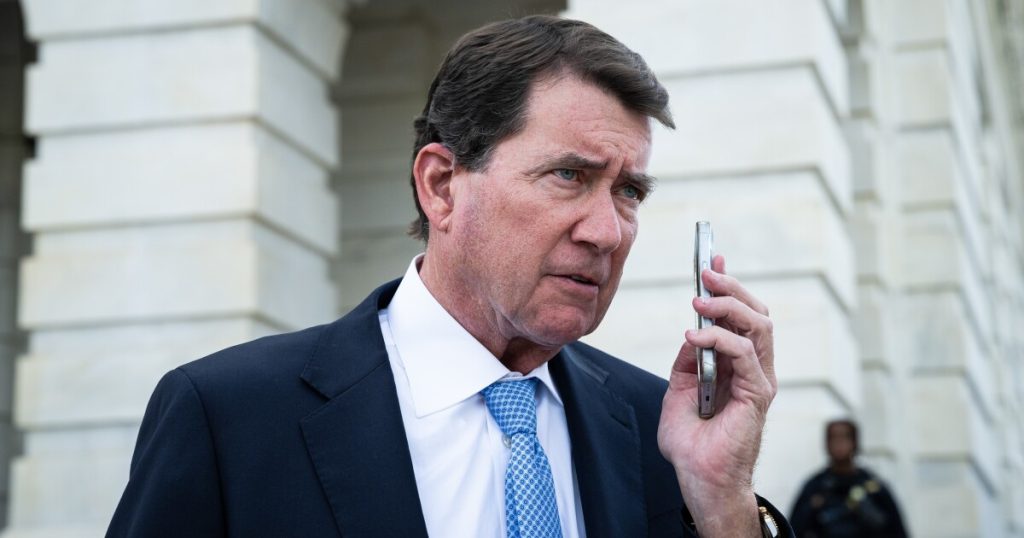- Key insight: Senators reduced proposed business account insurance limit from $20 million to $10 million, exempting banks under $10 billion of assets from costs.
- What’s at stake: Critics warn that expanded coverage will concentrate deposits at larger institutions without addressing assessment fees following major bank failures.
- Forward look: The bill still has to go through a markup in the Senate and then the House.
WASHINGTON — Some small banks are continuing to push back against a bill that would raise deposit insurance limits for business accounts, even as the legislation, which has the support of a nationwide trade group for community banks, rolls ahead in Congress.
Sens. Bill Hagerty, R-Tenn., and Angela Alsobrooks, D-Md., recently lowered their limit for expanded deposit insurance for business accounts
The change won the support of the Independent Community Bankers Association, a key constituency for lawmakers who are wary of
In the last week though, small bankers outside the group have started to push back harder against the proposed changes.
A group of state bankers organizations wrote to the heads of the banking committees in Congress, lobbying for different changes to deposit insurance. The groups, made up of the Arkansas Bankers Association, the Colorado Bankers Association, the Kentucky Bankers Association, the Missouri Bankers Association, the New Hampshire Bankers Association and the Texas Bankers Association, argued that a deeper change is needed.
“Simply raising account coverages will not address the much-need structural reforms we believe are necessary to ensure our deposit insurance system protects current and future generations of depositors,” the groups said in the letter obtained by American Banker.
It’s a particularly influential group of banking organizations, representing about 20% of all Federal Deposit Insurance Corp.-insured institutions in the country. The Texas Bankers Association has a particularly wide membership, and the Arkansas and Kentucky associations represent banks in states with powerful banking lawmakers — House Financial Services Committee Chairman Rep. French Hill, R-Ark., and Rep. Andy Barr, R-Ky.
The state groups suggested that lawmakers consider a bill that would create a “Transaction Account Guarantee” program, which would allow the Treasury secretary to invoke emergency authority whenever there’s a high likelihood of widespread bank runs or deposit flight that would threaten financial stability. The program would be similar to the one established amid the 2008 financial crisis, which provided FDIC deposit insurance for non-interest-bearing transaction accounts in excess of $250,000.
The change would “help mitigate bureaucratic delay when time is of the essence,” the groups said.
“It would not, as is currently the case, require a bank receivership to have occurred as a predicate to the systemic risk exception,” the groups said in the letter. “Rest assured, we are not proposing a government bailout of poorly managed institutions — banks, not American taxpayers, are responsible for paying the FDIC premiums paid into the [Deposit Insurance Fund]. Rather, this is intended to protect against system-wide shocks caused by significant economic or national security emergencies.”
Other small bankers see issues with the bill backed by Hagerty and Alsobrooks.
Jill Castilla, president & CEO of Citizens Bank of Edmond, said that while the bill guards against small banks having to pay more in assessment fees during the transition to a $10 million deposit insurance limit for business accounts, it doesn’t address what happens to assessment fees if there’s a large bank failure that requires a special assessment or increased premiums after that time frame.
“This increase in insurance will concentrate deposits at institutions,” Castilla said. “There needs to be more data and analysis about the projected risk exposure and the process that will be used to charge premiums based upon that risk.”
Christopher Williston, president and CEO of the Independent Bankers Association of Texas, said that the updated bill doesn’t go far enough to safeguard a future assessment on community banks for insuring the risk-taking of all but the largest banks that will get the expanded coverage.
“And finally, there is a big difference between a $250MM asset sized community bank operating in East Texas from a $450B asset sized bank operating across the country, and yet, the Bill provides the same coverage and cost for both,” he said in an email.
“Regulators should not be in a position to manage the community banks that they are sent in to supervise, and yet, we are concerned that additional deposit insurance coverage and DIF exposure could result in just that,” he said.

